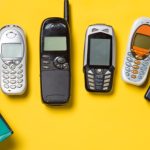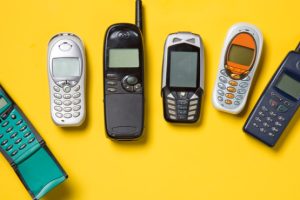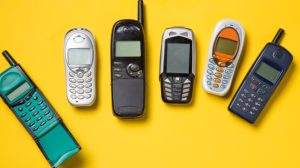In our increasingly digital age, mobile phones have become integral to our daily lives. These devices offer unparalleled convenience, connectivity, and entertainment, but their overuse can lead to a growing concern—mobile phone addiction. This article delves into the concept of mobile phone addiction and its significant impact on mental health.
The Pervasiveness of Mobile Phones
Mobile phones have evolved from communication tools into multifunctional devices, offering social media, gaming, streaming, and endless applications. This versatility has led to increased screen time and a growing dependence on our phones.
Defining Mobile Phone Addiction
Mobile phone addiction, often referred to as “nomophobia” (the fear of being without a mobile phone), is characterized by excessive and compulsive smartphone use. It involves the constant urge to check messages, social media, and other apps, even in situations where it’s inappropriate or potentially harmful.
The Impact on Mental Health
Mobile phone addiction can take a toll on mental health in several ways:
- Anxiety: The fear of missing out (FOMO) is a common anxiety trigger. Constant notifications and the pressure to stay connected can lead to restlessness and anxiety.
- Depression: Excessive use of social media can contribute to feelings of inadequacy, low self-esteem, and social isolation. The relentless comparison with others can exacerbate depressive tendencies.
- Sleep Disturbances: The blue light emitted by phone screens disrupts sleep patterns. Staring at screens before bedtime can lead to poor-quality sleep and sleep deprivation.
- Stress: The constant influx of messages and information can be overwhelming, leading to high stress levels. The urge to stay connected can make it difficult to disconnect and unwind.
- Decreased Productivity: Mobile phone addiction can hinder productivity as users find themselves easily distracted by the allure of their devices. This can lead to decreased work or study efficiency.
- Relationship Strain: Excessive phone use can strain personal relationships. Neglecting face-to-face interactions for virtual ones can lead to misunderstandings, conflict, and a sense of disconnection.
Recognizing Mobile Phone Addiction
Identifying mobile phone addiction is crucial for addressing its impact on mental health. Some common signs include:
- Constantly checking your phone, even in inappropriate situations.
- Neglecting work or social responsibilities because of phone use.
- Feeling anxious or stressed if you can’t access your phone.
- Neglecting real-life interactions in favor of virtual ones.
- Experiencing sleep disturbances due to late-night phone use.
Addressing Mobile Phone Addiction
Addressing mobile phone addiction requires a mindful and deliberate approach:
- Set Boundaries: Establish screen-time limits and create phone-free zones in your daily routine.
- Digital Detox: Periodically disconnect from your phone to reset your focus and reduce anxiety.
- Prioritize Real-Life Interactions: Cultivate in-person relationships and meaningful experiences that don’t involve screens.
- Use Apps for Good: Consider using apps designed to track and manage your screen time.
- Practice Mindfulness: Be present in the moment and reduce multitasking to enhance your focus and overall well-being.
Conclusion
Mobile phones are undoubtedly valuable tools, but it’s essential to use them in a way that supports our well-being rather than detracting from it. Recognizing and addressing mobile phone addiction is a vital step in safeguarding our mental health and finding a healthier balance between the digital and physical worlds.














Add Comment